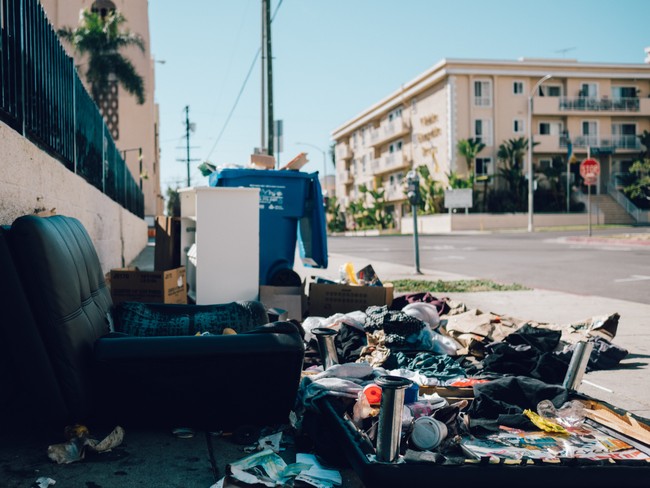
In a 6-3 decision, the Supreme Court ruled that homeless people do not have a constitutional right to camp on public property. Justice Neil Gorsuch, writing for the majority, pointed out that making laws is the job of the People, not judges who have no skin in the game:
Homelessness is complex. Its causes are many. So may be the public policy responses required to address it. The question this case presents is whether the Eighth Amendment grants federal judges primary responsibility for assessing those causes and devising those responses. A handful of federal judges cannot begin to “match” the collective wisdom the American people possess in deciding “how best to handle” a pressing social question like homelessness. Robinson, 370 U. S., at 689 (White, J., dissenting). The Constitution’s Eighth Amendment serves many important functions, but it does not authorize federal judges to wrest those rights and responsibilities from the American people and in their place dictate this Nation’s homelessness policy.
The case is called City of Grants Pass vs. Johnson, and it may be the most significant case concerning homelessness ever issued by the Supreme Court as a clear majority on the nation’s homeless live in jurisdictions covered by the Ninth Circuit. This case came as the result of a lawsuit brought by two homeless people from Grants Pass, OR, contending that city’s ordinance forbidding camping on public property violated the Eighth Amendment prohibition against “cruel and unusual punishment” because the ordinance provided for fines (fining the homeless seems rather pointless but whatever) or 30 days in jail for multiple offenses. The decision is not a huge shock as the majority in the decision were highly skeptical of the attack on the city ordinance during oral arguments.
BACKGROUND: SCOTUS Seems to Side With Oregon City and Its Ban on Homeless Camping, Ruling Will Have Huge Implications – RedState
The plaintiffs used two lines of attack. First, they say that the Grant Pass ordinance improperly criminalizes homelessness in the way a California law criminalized drug addiction (Robinson vs. California). Gorsuch calls bull***t on that argument.
Grants Pass’s public-camping ordinances do not criminalize status. The public-camping laws prohibit actions undertaken by any person, regardless of status. It makes no difference whether the charged defendant is currently a person experiencing homelessness, a backpacker on vacation, or a student who abandons his dorm room to camp out in protest on the lawn of a municipal building.
The real backbone of the case was a Ninth Circuit ruling called Martin vs. Boise, which held that local governments cannot enforce anti-camping ordinances if they don’t provide sufficient shelter beds to accommodate the homeless population. That decision is now dead.
Justice Sonia “the Wide Latina” Sotomayor basically lost her crap. She read a dissent nearly as long as Gorsuch’s opinion from the bench. This is a sample.
Sleep is a biological necessity, not a crime. For some people, sleeping outside is their only option. The City of Grants Pass jails and fines those people for sleeping anywhere in public at any time, including in their cars, if they use as little as a blanket to keep warm or a rolled-up shirt as a pillow. For people with no access to shelter, that punishes them for being homeless. That is unconscionable and unconstitutional. Punishing people for their status is “cruel and unusual” under the Eighth Amendment.
This decision prevents the utter insanity of Martin vs. Boise from infecting more of the country and irresponsible politicians like California’s Gavin Newsome from using homelessness to punish law-abiding citizens.

